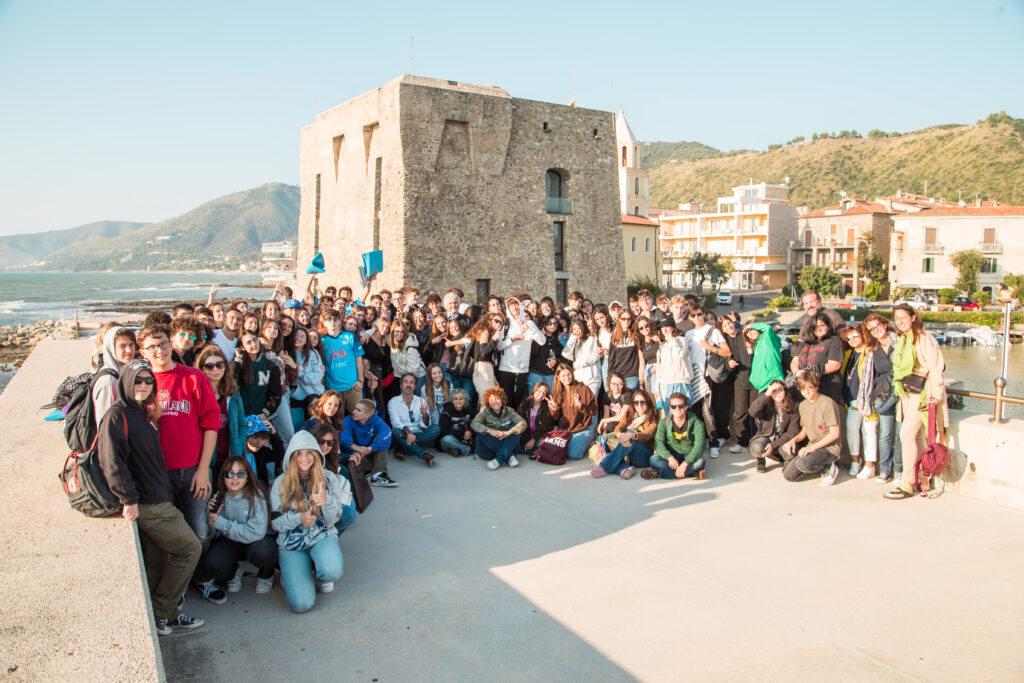Integral Ecological Regeneration: Mediterranean diet, model of sustainable development, science and innovation at the service of a world heritage
What are the necessary ingredients to explain integral ecological regeneration to 140 high school students?
- Choose the right location, capable of transmitting knowledge and knowledge directly. In this the Cilento, represents an incredible open air classroom to be able to breathe and taste what regeneration really means
- Choose the right narrators, authentic, credible, who can bring a real and concrete witness. Bringing the school to those people who are the protagonists of the change in progress because they are the engine, to learn directly from their experience and experience is what can make the school a place of direct experience and not just theoretical and passive training.
- Choose participatory methods: a class that shares and reasons together to achieve common goals is the basis for stimulating a sense of union and active citizenship.
Starting from these three elements, the boys of the high school A. Pansini of Naples have been able to personally experience the power of collaboration. On the Port of Acciaroli, disheveled by the Mediterranean wind and under the warm sun of early autumn, the boys and their teachers met our Sara Roversi, which led them to reflect on the role of food in our lives, but also on the Agenda 2030, on the paradoxes and challenges of the agri-food sector and the need for sustainable innovation and integral ecology.
But it was with the Mayor of Pollica, Stefano Pisani that the boys could focus concretely, on what was the Mediterranean Diet. A simple question, which gave the opportunity to reflect on the impact (environmental, social and cultural) of our lifestyles, to talk about agriculture, farmers, climate change, and to reflect together on the role of farmers, convivium, women, knowledge, recipes, biodiversity, passing from Ancel Keys to the need for balance, from the current stereotypes behind the Mediterranean Diet to the food of the future.
Because all this is the Mediterranean Diet and it is crucial to continue to co-design together ways of making tradition and innovation at the service of the Mediterranean. This moment together with the students of the Liceo A. Pasini of Naples was held at the FAO Science and Innovation Forumto witness how the new generations must be involved not only from school desks but also with immersive experiences, on the field.

